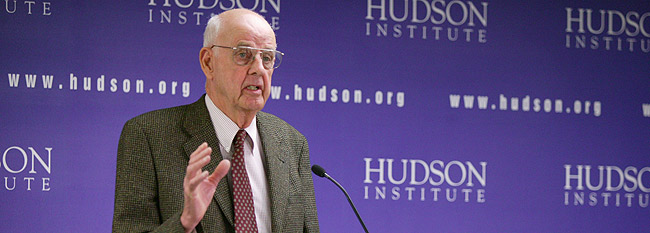Technology, Culture, and Virtue
Notice: Undefined index: gated in /opt/bitnami/apps/wordpress/htdocs/wp-content/themes/thenewatlantis/template-parts/cards/25wide.php on line 27
On Wendell Berry’s unnatured man

On June 30, 2008, author and agrarian advocate Wendell Berry appeared on a panel at the Hudson Institute’s Bradley Center for Philanthropy and Civic Renewal in Washington, D.C. to discuss rural philanthropy. The following excerpts from the transcript have been lightly edited for clarity. To read the entire transcript or to watch video from the event, click here.
We seem to have decided around the time of World War II that we would have an urban industrial economy, abandoning the land along with the land’s economies and people…. The results have been the virtual destruction of the human life of the land along with extensive ecological and geographic damage, some of which is irreparable. The ongoing practice of mountaintop removal and valley fill-mining in Appalachian coal fields, like the ongoing pollution and other damages of factory farming, show us that our present willingness to destroy our country is without limit and is limitlessly heartless.
By political inanity, left and right, we have been living under a policy of cheap food — cheap at any cost — founded foursquare upon a policy of cheap energy — cheap at any cost. The flaw in those policies is that when you cheapen a product with no other aim or consideration than to make it cheap, you will eventually destroy the supply. If cheap energy is your aim, then you destroy the land and the people to cheapen energy at any cost, and you destroy as well other sources of energy which cannot be produced so cheaply or by favored industries, or the costs of which cannot be so readily externalized.
If cheap food is your aim and you cheapen it at any cost, then after only sixty or so years you arrive at a situation that would be comical if it were a shade or two less dark. Even if most of your farmland were still capable of producing the best food — which it is not — you have nearly totally destroyed the culture and know-how that might have produced food in the best way. Country people who were once primarily producers for themselves and others have become primarily consumers, entirely dependent on the industrial system — and always to their detriment.
Now the people who wanted an urban industrial economy without the bother of a rural, agrarian economy have what evidently they wanted: universal pollution and bad health; expensive water, milk, and gasoline; farmland priced beyond the reach of farmers; a doubtful future for eating; and everything too far away….
What I see that is hopeful is what I’ve been calling “leadership from the bottom.” Mainly I believe that without funding from governments or foundations, without official permission or approval or even awareness, many people are now working hard to bring farming, ranching, and forestry into line with ecological principles; to apply appropriate standards of judgment to their work; and to restore local economies — beginning with food. The people who are doing this work started doing it typically because they saw the almost-perfect destructiveness of industrialism, and they hoped to do better….
I believe that the best and very likely the only hope for the health and productivity of our land rests upon the renewal and stabilization of rural communities and rural livelihoods, and that these in turn rest upon the development of socially and ecologically coherent, diverse, land-based local economies….
Another really significant historical occurrence is the universality of basic ignorance that we’ve accomplished in our society, and this is extraordinarily significant when we’re discussing issues of land use because good land use can’t come about until a lot of people are on the land in the appropriate balance … when you’ve got enough caretakers on the land to take care of it, and enough knowledgeable caretakers to do so. So this puts us in a very difficult and trying situation. This is an emergency. And it can’t be remedied in a hurry. I think one of the biggest tests that we humans are going to have to come up against is the need to be patient in an emergency.
But on the other hand, there are a lot of people who are learning, now — a lot of urban consumers who have begun to learn about food. And so it’s not as if we are having to start from zero. We simply are facing the need to elaborate and enlarge the learning that has already begun. Of course, the first step is to understand how ignorant we are. But I think a lot of this what I guess you might call “urban agrarianism” that’s supporting the farmers’ markets and so on comes from consumer recognition of ignorance and incompetence. And when they go to the farmers’ markets, which are always social events, they begin to talk to producers and they begin to learn — and to learn the difference between a good tomato and a bad tomato. After all, it’s authentic knowledge. It’s authentic learning….
There is a man who comes to the little farmers’ market in my county seat who has an orchard. He’s a really good fruit grower. Among other things, he comes to town with apples, and he makes fried apple pies and sells them right there at the farmers’ market. And they’re absolutely wonderful. You couldn’t give that man a grant of a million dollars that would make him better at cooking fried pies, or that would make him a better orchardist.
So, I’m back to the idea that we’ve got to deal with the problems where they exist, and where they exist is exactly where our educational institutions aren’t prepared to go. So we’ve got this leadership-from-the-bottom problem, but the consolation to it is that it’s happening.
During Covid, The New Atlantis has offered an independent alternative. In this unsettled moment, we need your help to continue.